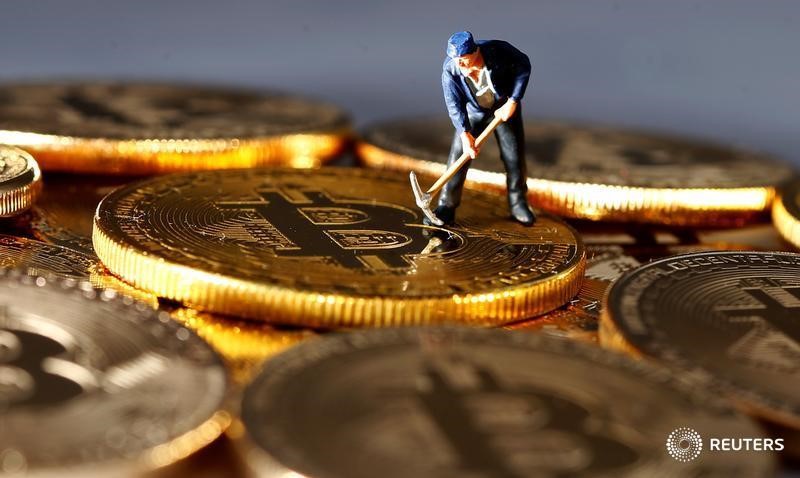This article is an on-site version of our Swamp Notes newsletter. Sign up here to get the newsletter sent straight to your inbox every Monday and Friday
As Swamp Notes readers will know, I’ve always argued for a certain amount of regionalisation and localisation of economies as a way to create more resiliency and rebalance the global economy with the politics of the nation state. My feeling is that we need a better balance of local and global to create a more sustainable, secure, and equitable world. While I get into how and why we’ve had a backlash to globalisation, there’s also a lot of optimism, and many examples of how the new trend towards economic localism is playing out in positive ways.
That said, there’s no doubt that the paradigm shift from unfettered globalisation to whatever comes next brings with it massive challenges. I’ll focus on two of them in this Note. First, the chip wars are heating up. I’ve long thought that the US and China would end up with two different technology ecosystems for all sorts of reasons, from national security concerns to the differences in how each country views personal privacy and state control of data.
Donald Trump began the process of decoupling. But last week the Biden administration’s new export controls on the chip industry sped it up significantly, with massive restrictions that will bar US companies from exporting advanced chips to China and limit Americans working for companies that do. (According to this Twitter thread from a Rhodium analyst, many are already leaving China in droves.)
I’ve heard from one source close to the administration that the Chinese have been making significant chip purchases in recent months to build up inventory (which is what happened after the Huawei sanctions), and have been working hard to ramp up homegrown production. But there’s no question that the sanctions are going to slow down developments in artificial intelligence and advanced military technology (around things like hypersonic weapons) and lead to even more technology disengagement by US companies (and some allies, depending on how the Foreign Direct Product Rule is used).
How will the Chinese react now? That’s a huge question. The best-case scenario is that they simply continue working on indigenous chip designs (and hopefully focus more on civilian usages) while the two superpowers learn to live with, and increasingly without, each other. The worst? China is backed into a corner and takes some extreme action around Taiwan. As my colleague Robin Harding pointed out in a column, if the Chinese feel that their growth is being thwarted, it could make geopolitics even more precarious. Ed, I’m curious, what actions do you think Beijing will take now? And what are you hearing from White House or State Department folks about what the best and worst-case scenarios here might be?
Now for challenge two: the global competition between energy and debt. The Fed is hiking rates to control inflation in the US, and one big part of that effort is to try to bring down energy prices (by reducing consumption, though not so much that you get a hard landing). Meanwhile, many countries are having to sell down dollar assets to pay for energy, and defend their own currencies. Selling Treasuries into an already volatile market could backfire and hurt the Fed. But pivoting away from quantitative tightening before it’s time might be even worse.
Vladimir Putin was of course counting on all of this. (His speech about how people “cannot be fed with printed dollars” or have their homes heated with them was creepy.) And now, with the Saudis piling in and Opec cutting production, the situation is even more dangerous. Is there any way out? The Fed is talking about some bank regulatory relief (allowing them out of certain capital requirements to stabilise bond markets). But that, too, has its risks. The bottom line is that while central banks used to be the only game in town, they now have some sharp competition from commodity rich nations.
Ed, what would you add to the list of deglobalisation challenges at the moment?
Recommended events and reading
Anyone who is around in DC tomorrow night, please come hear me discuss my book with the wonderful Sarah Bloom Raskin, at Politics and Prose.
And if you are around Friday in New York City and want to hear more about the post-neoliberal world, check out this one day event on the topic sponsored by the FT and Columbia University Law School — I’ll be doing another book talk, but there will be many more fabulous folks like Joe Stiglitz, Gary Gerstle, Heather Boushey, Dani Rodrik, Kate Judge, Quinn Slobodian, Asutosh Padhi, and so many more.
Finally, don’t miss this fascinating and sobering round-up of how FT readers are coping with inflation.
Edward Luce responds
You have asked me variations on the deglobalisation question a few times and I don’t have any radically different answers for you. What has taken me by surprise is the degree and speed of semiconductor decoupling by the US. Doubtless China will redouble its efforts to ascend the indigenous innovation ladder and its ability to make rapid progress cannot be discounted.
China has made remarkable strides in many areas, including electric vehicle batteries, nano-technology, quantum computing and solar power. I appreciate that the high end of semiconducting design and production is probably a bigger leap. But where there is a will, there is a way — and for Xi Jinping this will be an overriding national priority. Doubtless this stepped up pace of high-tech decoupling will make Taiwan more vulnerable to Chinese aggression in the near future.
I would also imagine that TSMC and other Taiwanese producers will come under growing pressure to diversify their production to other countries, including the US. Either way, we are entering a very different world in which global technology bifurcation will increasingly become a reality. If China’s growth continues to slow, and its politics continue to become more autocratic, this will lessen the appeal of the Chinasphere to other countries. On a personal note, if decoupling shortens TikTok’s shelf life no one will be happier than me.
In terms of the effects of global monetary tightening, I was struck last week by the gloomy consensus at the annual IMF/World Bank meetings in Washington. We are in a “no matter how much it costs” phase of interest rate increases, led by a Fed that is determined not to see a repeat of the 1970s. It was serendipity that my Lunch with the FT with Mark Carney, the former governor of the Bank of England, came out just after Liz Truss, Britain’s omnishambolic prime minister, had fired Kwasi Kwarteng, her kamikaze chancellor of the exchequer.
Carney did his best to give a diplomatic assessment of Britain’s shenanigans but his astonishment at the UK’s recent unforced errors was nevertheless evident. One very senior former UK official, who was also at the annual meetings, said the way people inquired about events in Britain reminded him of being asked about a recent death in the family — in a tone of pity and sadness. His analogy struck a chord with me. For the time being, and I very much hope for not too much longer, the UK has become the butt of well-deserved jokes. From David Cameron to Boris Johnson and Kwasi Kwarteng, Britain’s reputation is being squandered on the playing fields of Eton.
Your feedback
And now a word from our Swampians . . .
In response to ‘America is back to being world’s tallest dwarf’:
“China is in much worse domestic shape than you suggest. Omicron has ruined the zero-Covid strategy which increasingly feels to many inhabitants like a feature with no apparent end. It’s brutally enforced . . . On the macroeconomic front, the collapse of the real estate boom is still a big issue. As long as many poor, ex-peasants who are new to the cities feel they are doing better than before, Xi is probably all right. But foreigners are leaving in droves, as are the Chinese upper middle classes, with English, foreign contacts and good jobs, especially those with children. Xi is probably glad to see the back of them.” — Swamp Notes reader
“In the short term, your assessment of the US being the tallest dwarf might be correct, but it seems to me that the real long-term beneficiary of Russia’s miscalculations will be China. As the rest of us fight this conflict down to the last Ukrainian, China is expanding its ties to an increasingly enfeebled Russia, which can address China’s main strategic weaknesses. China is now the world’s manufacturing powerhouse, but it still suffers deeply from lack of water, lack of resources, climate change, and declining agriculture yields. It needs Russian assets and will simply become Moscow’s buyer of last resort thanks to the western sanctions on the Putin regime. In this new Cold War 2.0, it’s unclear as to whether the US/EU/Nato alliance will be on the winning side. Two can play at the sanctions game and the US has already degraded its manufacturing base to such a degree that it is increasingly vulnerable if and when Beijing decides to respond in kind.” — Marshall Auerback, New York, New York
Your feedback
We’d love to hear from you. You can email the team on [email protected], contact Ed on [email protected] and Rana on [email protected], and follow them on Twitter at @RanaForoohar and @EdwardGLuce. We may feature an excerpt of your response in the next newsletter
Recommended newsletters for you
FirstFT Americas — Our pick of the best global news, comment and analysis from the FT and the rest of the web. Sign up here
Inside Politics — Follow what you need to know in UK politics. Sign up here
















